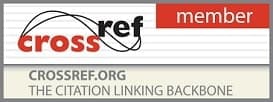ISSN: 2456-4419, Impact Factor (RJIF): 5.88
Peer Reviewed Journal
2025, Vol. 10 Issue 2, Part E
Chronobiology and Organ Function: A Research Perspective on the Traditional Chinese Medicine Organ Clock
AUTHOR(S): Ramesh Ponnurangam, Nandhini A, Rohini Thirumurugan, Karthikeyan P, Poonguzhali S, Arthi Balakrishnan and Velan Arumugam
ABSTRACT:
The concept of time-dependent organ activity is central to Traditional Chinese Medicine (TCM), where each organ system is believed to have a two-hour peak of functional dominance within a 24-hour circadian cycle. This framework, often termed the "organ clock," has gained renewed interest in modern chronobiology and integrative medicine. According to this model, the lungs are most active from 3:00-5:00 AM, the large intestine from 5:00-7:00 AM, the stomach from 7:00-9:00 AM, the spleen from 9:00-11:00 AM, the heart from 11:00 AM-1:00 PM, the small intestine from 1:00-3:00 PM, the urinary bladder from 3:00-5:00 PM, the kidneys from 5:00-7:00 PM, the liver from 1:00-3:00 AM, and the gallbladder from 11:00 PM-1:00 AM.
This manuscript examines the organ clock from both traditional and scientific perspectives. First, we analyze historical foundations within TCM and the philosophical underpinnings that link organ activity to Qi flow, meridians, and holistic health. Next, we explore correlations with modern physiology, including circadian rhythms, hormonal cycles, autonomic nervous system regulation, and digestive-metabolic processes. We highlight parallels between TCM organ timing and evidence-based biological rhythms such as cortisol peaks, melatonin secretion, gastrointestinal motility, and renal filtration. Finally, we discuss clinical implications for lifestyle modification, chronotherapy, disease prevention, and personalized medicine.
By bridging TCM insights with contemporary chronobiology, this research underscores the relevance of temporal patterns in organ function and health management. The organ clock may provide a useful framework for optimizing therapeutic interventions, aligning lifestyle behaviors with natural body rhythms, and fostering integrative approaches in modern healthcare.
Pages: 345-349 | 482 Views 119 Downloads

How to cite this article:
Ramesh Ponnurangam, Nandhini A, Rohini Thirumurugan, Karthikeyan P, Poonguzhali S, Arthi Balakrishnan, Velan Arumugam. Chronobiology and Organ Function: A Research Perspective on the Traditional Chinese Medicine Organ Clock. Int J Yogic Hum Mov Sports Sciences 2025;10(2):345-349.







 Other Journals
Other Journals